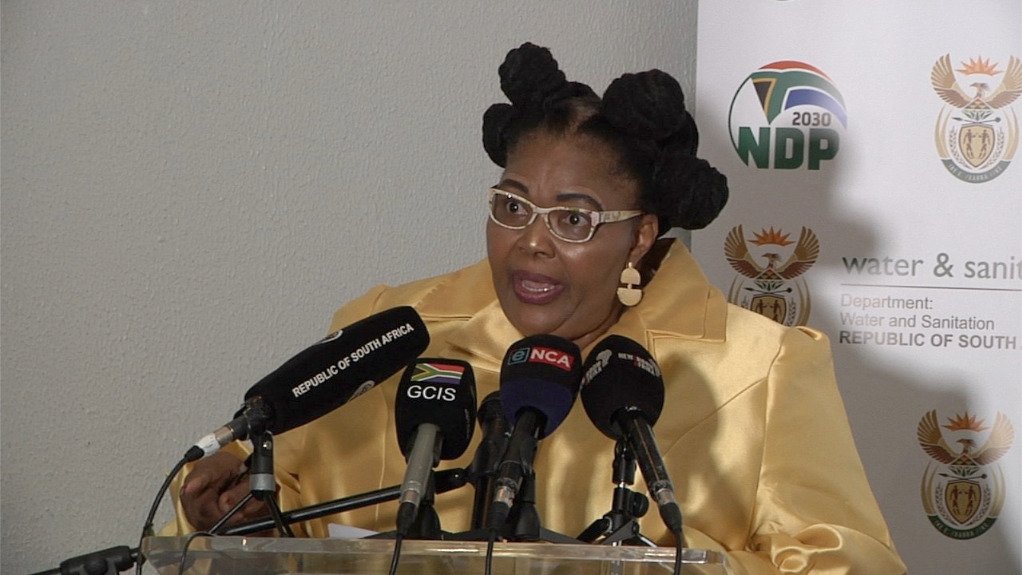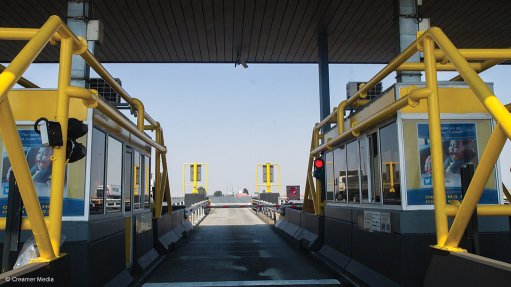DWS will support, not interfere with, municipalities’ water provision responsibilities


Water and Sanitation Minister Pemmy Majodina discusses the roles and responsibilities of department and the municipalities regarding water provision. 05.08.2024. Camerawork and videoediting: Shadwyn Dickinson
Water and Sanitation Minister Pemmy Majodina
While several municipalities across South Africa have battled to maintain consistent water services for citizens, the Department of Water and Sanitation (DWS) said it cannot take over and interfere with their roles and operations unless it becomes necessary.
The department will, however, continue providing extensive support to struggling municipalities.
Speaking to media during a departmental update on Monday, Water and Sanitation Minister Pemmy Majodina clarified the roles of municipalities and the DWS, noting that the provision of local water and sanitation services was the Constitutional and legal responsibility of municipalities.
“We do intervene when norms and standards are not being met. We do not overtake and interfere with the roles of the municipalities.”
As outlined by the Constitution, National Water Act and the Water Services Act, the DWS is responsible for water resource management and taking regulatory action to protect water resources; setting national minimum norms and standards for water services provided by municipalities and providing support to municipalities and only intervening where these norms and standards are not being met.
“Since being sworn in, we have been inundated with calls and messages from the public and local and provincial political leaders regarding challenges with water and sanitation service delivery at local level. These challenges have included a lack of access to water, sewage pollution and disruptions in water supply for various reasons,” she said.
However, the first point of call for residents to raise issues regarding municipal water and sanitation services must be their municipalities, she added, as the department could not do maintenance or repairs to municipal infrastructure on behalf of a municipality.
The DWS provides extensive support for municipalities, including through grants such as the Regional Bulk Infrastructure Grant (RBIG) and the Water Services Infrastructure Grant (WSIG) which are allocated to non-metropolitan municipalities.
The municipalities also receive the Municipal Infrastructure Grant, which is allocated by the Department of Cooperative Governance and Traditional Affairs (Cogta), and the Human Settlements Development Grant which is allocated to metropolitan municipalities by the Department of Human Settlements (DHS).
“In this term, it will be a priority for us to continue to work with municipalities to ensure that they prioritise projects to increase access using their RBIG and WSIG allocations.”
Further, along with Cogta, National Treasury and DHS, DWS will continue to support municipalities to improve their water and sanitation services in several ways. It will assist municipalities to improve their water services planning through the development of Five-Year Water and Sanitation Reliability Plans, Water and Sanitation Master Plans, and Water Services Development Plans.
Despite the high level of support provided to municipalities, in general municipal water and sanitation services continue to decline, which DWS aims to address through the introduction of the Water Services Amendment Bill, which will be presented to Cabinet for approval for it to be submitted to Parliament.
The Amendment Bill provides for the introduction of an operating licence system for Water Services Providers, to enable Water Services Authorities to ensure that their Water Services Providers have a minimum level of capability to provide water and sanitation services that meet national norms and standards.
The Bill also introduces measures to enable the national department to take regulatory action against municipalities which do not comply with national minimum norms and standards for water services.
“There are different roles between national government and the role for municipalities around the question of water provision, but national government will not abdicate the responsibility to support and also to intervene when norms and standards have not been met,” added Water and Sanitation Deputy Minister David Mahlobo.
As a last resort, should the municipality not perform, and fail, despite all the support, the DWS will invoke Section 63, as it had in the Emfuleni municipality in partnership with Rand Water to address sewerage pollution in the Vaal.
“Good progress has been made in refurbishing and repairing sewage pump stations, unblocking sewer lines, repairing collapsed sewer lines, as well as repairing and refurbishing wastewater treatment works. This has substantially reduced sewage pollution in residential areas in Emfuleni,” Majodina explained.
The main remaining work is the capacity upgrade of the major wastewater treatment works in the area, which is currently in the procurement phase.
During this financial year, the DWS will also be supporting Rand Water and Emfuleni local municipality to implement a decision by the Council of the Emfuleni municipality to establish a special purpose vehicle (SPV) to be the water service provider in the municipality in future.
It is envisaged that this SPV will have the capability to provide water and sanitation services that meet national minimum norms and standards.
“We will continue to work closely with eThekwini and the municipalities in Gauteng to encourage them to improve the maintenance and performance of their municipal water distribution infrastructure, such as by building additional reservoirs and pumping stations to improve the resilience of their systems, and by reducing leaks.”
Further, the DWS is continuing its support to the City of Tshwane to address the lack of piped, clean drinking water in Hammanskraal, with progress made in the repair and upgrade of the Rooiwal wastewater treatment works to address the sewage pollution in the Apies river and to enable the Temba water treatment works to become functional again.
Magalies Water will also complete, by October, the construction of Phase 1 of a ‘package plant’ to enable an alternative source of piped clean drinking water for Hammanskraal.
Article Enquiry
Email Article
Save Article
Feedback
To advertise email advertising@creamermedia.co.za or click here
Announcements
What's On
Subscribe to improve your user experience...
Option 1 (equivalent of R125 a month):
Receive a weekly copy of Creamer Media's Engineering News & Mining Weekly magazine
(print copy for those in South Africa and e-magazine for those outside of South Africa)
Receive daily email newsletters
Access to full search results
Access archive of magazine back copies
Access to Projects in Progress
Access to ONE Research Report of your choice in PDF format
Option 2 (equivalent of R375 a month):
All benefits from Option 1
PLUS
Access to Creamer Media's Research Channel Africa for ALL Research Reports, in PDF format, on various industrial and mining sectors
including Electricity; Water; Energy Transition; Hydrogen; Roads, Rail and Ports; Coal; Gold; Platinum; Battery Metals; etc.
Already a subscriber?
Forgotten your password?
Receive weekly copy of Creamer Media's Engineering News & Mining Weekly magazine (print copy for those in South Africa and e-magazine for those outside of South Africa)
➕
Recieve daily email newsletters
➕
Access to full search results
➕
Access archive of magazine back copies
➕
Access to Projects in Progress
➕
Access to ONE Research Report of your choice in PDF format
RESEARCH CHANNEL AFRICA
R4500 (equivalent of R375 a month)
SUBSCRIBEAll benefits from Option 1
➕
Access to Creamer Media's Research Channel Africa for ALL Research Reports on various industrial and mining sectors, in PDF format, including on:
Electricity
➕
Water
➕
Energy Transition
➕
Hydrogen
➕
Roads, Rail and Ports
➕
Coal
➕
Gold
➕
Platinum
➕
Battery Metals
➕
etc.
Receive all benefits from Option 1 or Option 2 delivered to numerous people at your company
➕
Multiple User names and Passwords for simultaneous log-ins
➕
Intranet integration access to all in your organisation




















